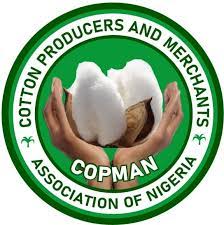COPMAN blames poor price, seed to cotton production decline
Cotton Producers and Merchants Association of Nigeria has blamed the decline of cotton production to poor price, seeds and lack of technical support for research and technological advancement. Abdussalam Musa, Spokesman of the Association, stated this at the 2022 Annual Cotton Master Sample and Production Meeting organized by the Institute for Agricultural Research, IAR, ABU […]

Cotton Producers and Merchants Association of Nigeria has blamed the decline of cotton production to poor price, seeds and lack of technical support for research and technological advancement.
Abdussalam Musa, Spokesman of the Association, stated this at the 2022 Annual Cotton Master Sample and Production Meeting organized by the Institute for Agricultural Research, IAR, ABU Zaria.
He said since the decline in price of the commodity, coupled with the poor and adulteration of seed by some cotton merchants, the production capacity has reduced drastically thereby crippling the nation’s and farmers’ reliable source of income.
“The yield per hectare dropped woefully to between 500-700 kg/h compared to the 15,000-2,000 kg/h obtained in 2000-2010.
How youths generate income through farm labour in Kano
Heads of agric colleges call for improved food security policies
In his remarks, Prof. Mohammed Faguji Ishaku, Executive Director, Institute for Agricultural Research ABU Zaria, said the cotton industry has witnessed successive intervention by past administrations, however, the desired transformation that will put the nation in the competitive position among the producing countries has not been fully achieved, in spite of the nation’s potential.
“The production as we know is still low, marketing is not adequately streamlined and quality of the lint is left to be desired. I want to say that if not for the doggedness of our research institute, IAR, cotton production will have been far behind what it is today.”
The Executive Director however said for the institute to meet up with the International standard, a modern cotton grading laboratory is desirable while provision of ginning machine will permit timely supply of pure breeder and foundation seed that are needed for next level of value chain by the institute.” He said.
Prof. Faguji said “ in order to enhance quality research orientation and output in cotton, the institute in the process of purchasing modern equipment such as Fibro Graph, Torsion balance, Ginning Machine and Comb Sorter for measuring fibre length.”
The Executive Director stated that IAR’s effort is also geared towards caucusing the level of cotton generic recombinance through increased hybridization and selection.
